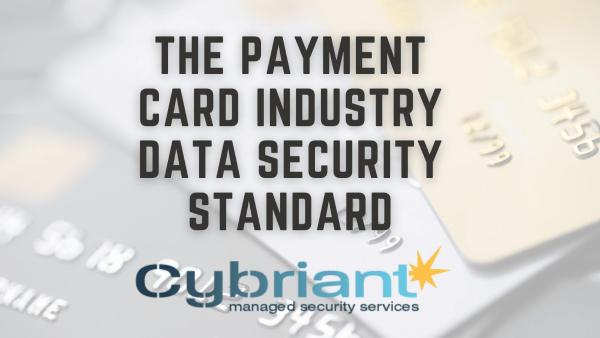The Payment Card Industry Data Security Standard
As a CIO, you’re likely familiar with the Payment Card Industry Data Security Standard (PCI DSS). But what do you know about it? PCI DSS is a set of requirements designed to protect credit and debit card data. It applies to anyone who processes, stores, or transmits payment card information.
If your company falls into one of these categories, it’s important to understand how PCI DSS can help protect your customers’ cardholder data. In this blog post, we’ll take a closer look at PCI DSS and explain why it’s so important for businesses processing credit and debit cards. We’ll also provide tips on how you can make sure your company is compliant with PCI DSS. Stay safe!
PCI DSS Compliance
The Payment Card Industry Data Security Standard (PCI DSS) is a set of security standards designed to protect organizations that process, store, or transmit credit card information. PCI DSS is managed by the PCI Security Standards Council (PCI SSC), an independent body that was founded in 2006 by major credit card companies (Visa, Mastercard, Discover, American Express, and JCB).
Since its inception, PCI DSS has become one of the most widely-adopted security standards in the world. As of 2018, there are over 3 million organizations in over 150 countries that are compliant with PCI DSS. PCI DSS compliance is required by all organizations that process credit card payments, regardless of size or industry.
Cardholder Data
Cardholder data is any information that can be used to identify a cardholder, including name, address, card number, expiration date, and CVV code. Cardholder data is considered to be the most sensitive information in the credit card processing chain, and as such, must be protected at all times.
Every day, businesses process, store, and transmit credit card information. This puts your business at risk of a data breach.
A data breach can be incredibly costly for a business. Not only does the business have to deal with the financial costs of the breach itself, but they also have to deal with the loss of customer trust and damage to its reputation.
PCI compliance protects your business from data breaches. By following the PCI DSS security standards, you can protect your customers’ cardholder data from being stolen or compromised.
PCI Data Security Standard (PCI DSS) Requirements
The PCI Data Security Standard (PCI DSS) requirements are a set of security standards that all businesses must follow to be compliant with the standard.
These requirements are divided into six main categories:
1. Build and maintain a secure network
2. Protect cardholder data
3. Maintain a vulnerability management program
4. Implement strong access control measures
5. Regularly monitor and test networks
6. Maintain an information security policy
These requirements are designed to ensure that businesses have comprehensive security measures in place to protect cardholder data from theft or misuse. They also include extensive guidance on how to implement these measures and provide detailed instructions for assessing compliance with the requirements.
Organizations must implement all 12 requirements to be compliant with PCI DSS. In addition, they must also undergo annual independent assessments by a Qualified Security Assessor (QSA) to validate their compliance.
History of PCI DSS Compliance
The Payment Card Industry Data Security Standard (PCI DSS) was developed in response to the growing threat of data breaches involving credit card information. It is a set of security standards created by the PCI Security Standards Council, an independent organization created by major payment card brands.
PCI DSS was first released in 2004, and since then it has undergone several revisions to keep up with changes in technology, data security threats, and industry best practices. The latest version of PCI DSS (version 3.2) was released in 2016 and includes additional requirements for cloud computing, encryption, and secure software development.
Risk of Non-Compliance with PCI DSS
Organizations that fail to comply with PCI DSS can face significant fines and penalties. Non-compliance carries several risks, including potential customer data breaches, customer dissatisfaction, reputational damage, litigation costs, and loss of external payment processing services.
To avoid these risks, organizations must ensure that they are compliant with the PCI DSS requirements. They should also conduct regular assessments of their systems and processes to identify any potential weaknesses or vulnerabilities that could lead to a data breach.
Conclusion
PCI DSS is a critical aspect of credit card data security. All organizations that process credit card payments must comply with the 12 requirements outlined in the standard. Organizations must also undergo annual independent assessments to validate their compliance.
Failure to comply with PCI DSS can result in heavy fines from the major credit card companies as well as reputational damage. For these reasons, it is crucial for all organizations that accept credit card payments to take PCI DSS compliance seriously.
Cybriant offers managed services that protect sensitive data. Contact us to learn more.

